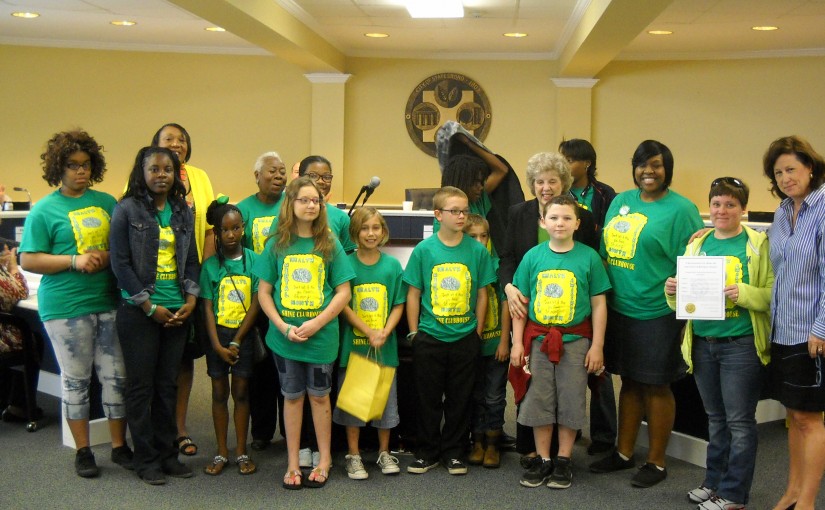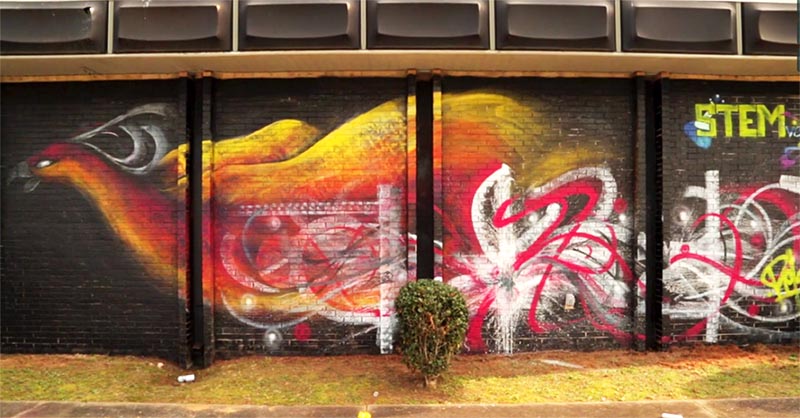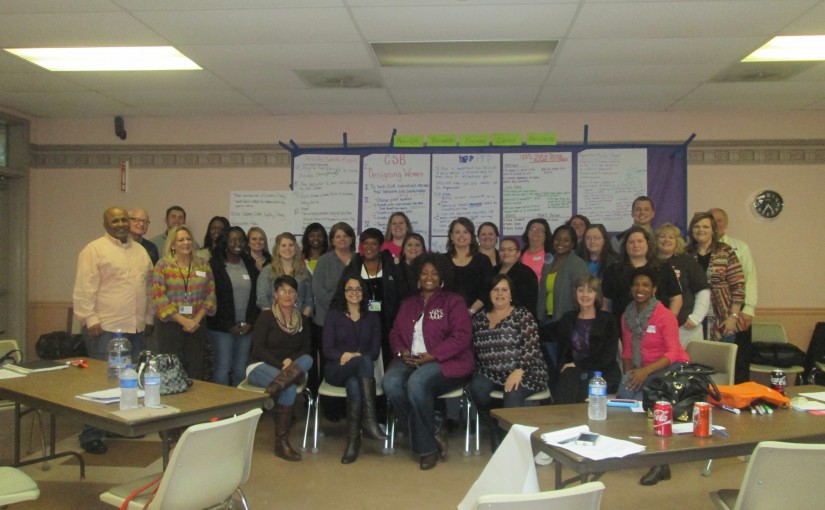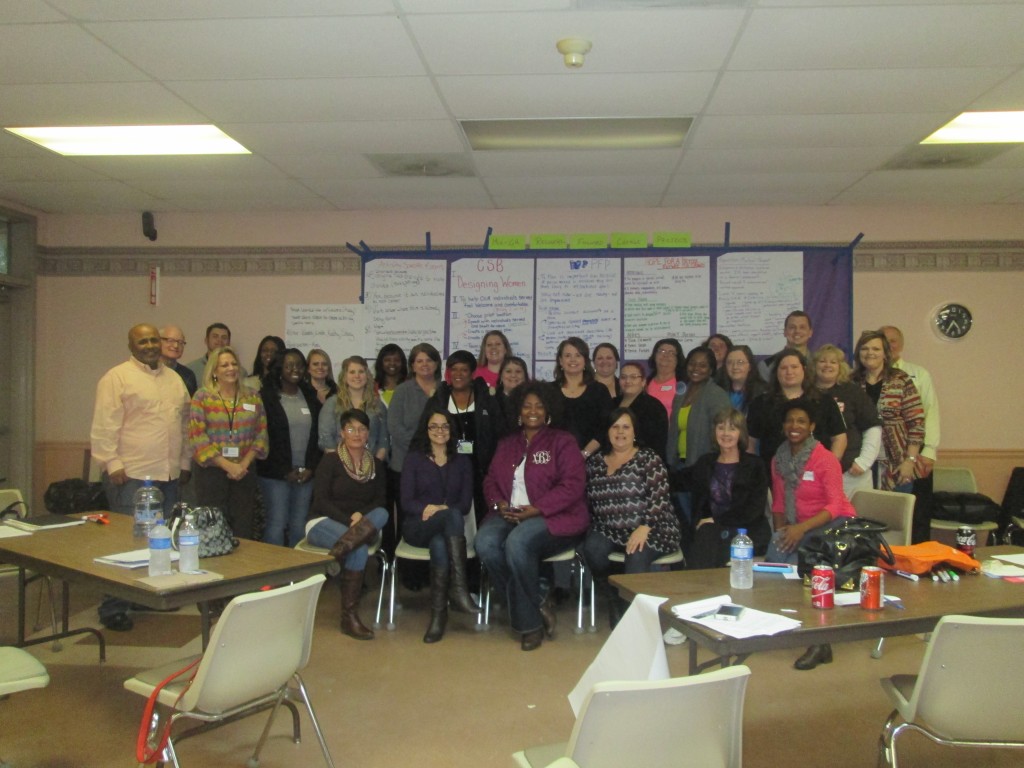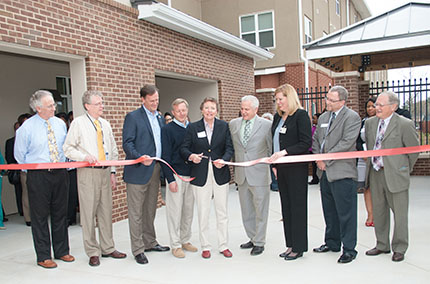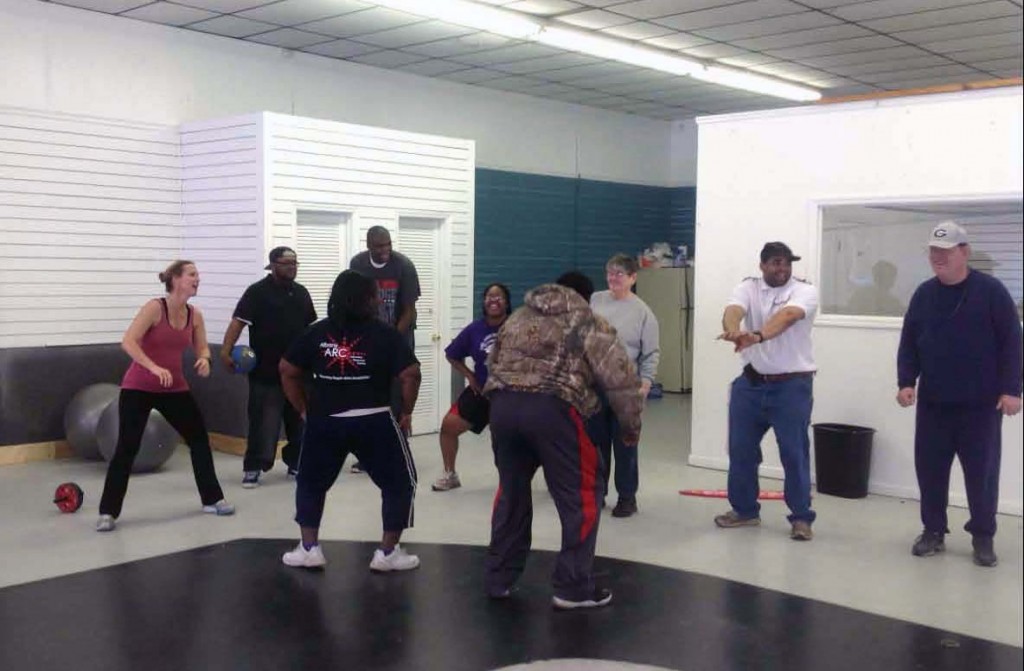Standing with Statesboro Mayor Jan Moore in green and yellow shirts printed with “Mental Health Awareness Month; Don’t let it stop you from shining,” kids from the SHINE clubhouse in Bulloch County were recognized this week for adopting an area to clean up and beautify.
The kids in the SHINE clubhouse program learn about community partnerships, attend various cultural events, take field trips to Atlanta, Stone Mountain and other attractions, visit nursing homes and create artwork and crafts to display at Stateboro’s First Friday events.
All these activities work toward the goal of recovery from substance use or mental health disorders by engaging youth and helping them manage behaviors and symptoms.
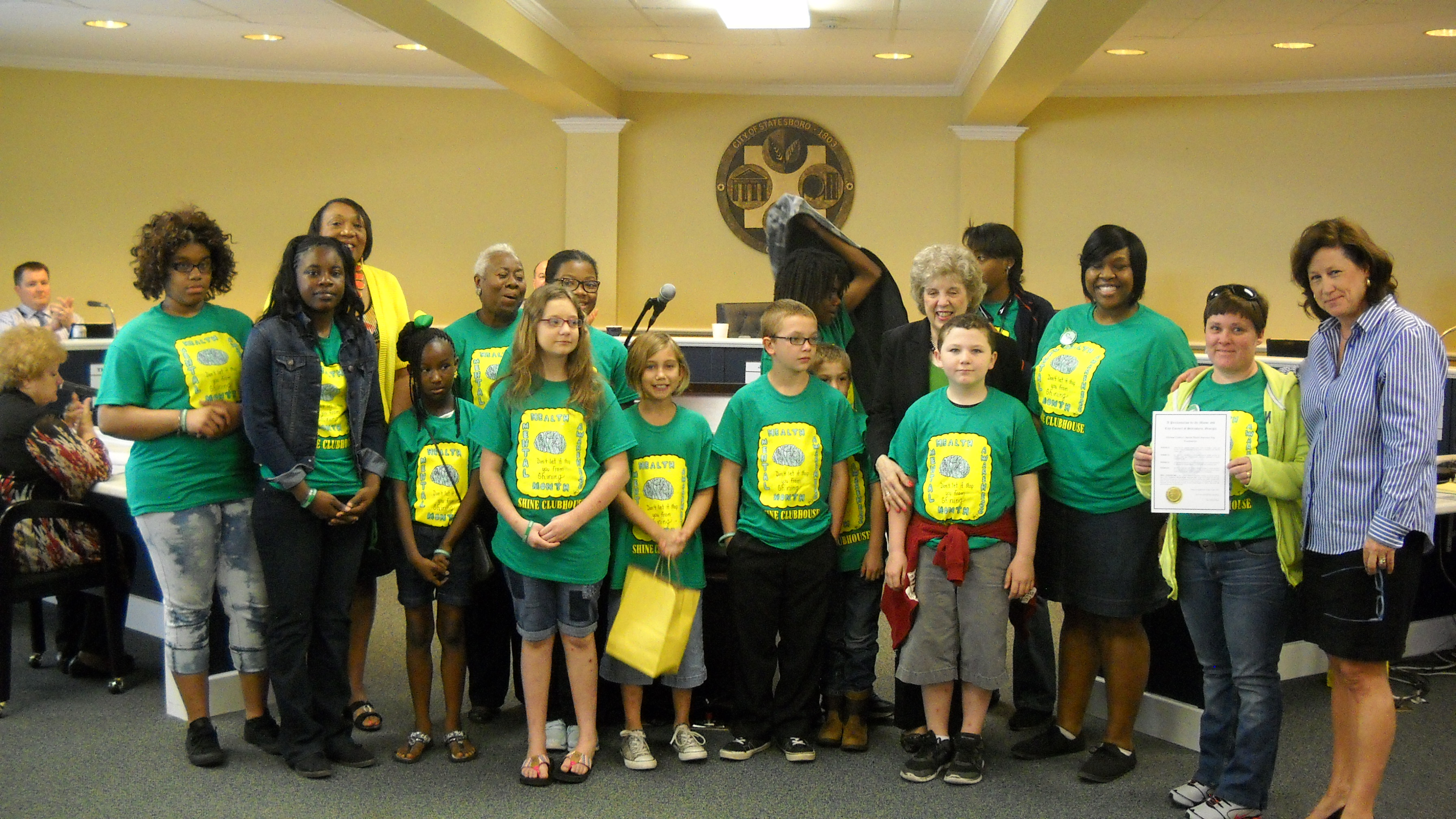
“In the clubhouse, youth participate in life skills groups, social outings, educational supports, career development and exploration and other activities that teach them how to maintain a healthy and sober lifestyle. Youth are also connected to resources that will empower them to make informed decisions about their recovery,” said Yomi Makanjuola, DBHDD’s director of treatment services.
DBHDD provides funding and offers support through staff training and site visits in partnership with local providers for two types of adolescent clubhouses: substance abuse recovery support clubhouses and resiliency support clubhouses.
Substance abuse recovery support clubhouses are for youth with a primary diagnosis of substance use disorder. They provide a comprehensive recovery support model designed to engage youth and their families. Staff and clubhouse members work together to perform the jobs at the clubhouse and participate in social outings, educational supports, employment supports and transitional services. Most of the youth are between the age of 11 and 17 and are referred through probation, the Department of Juvenile Justice, community service boards and other substance abuse treatment programs.
As one component in the overall care that these adolescents receive, the clubhouses are designed to provide recovery support to youth as they strive to improve their life and wellness while decreasing or encouraging abstinence from alcohol and/or substance use. Participants in the program either currently receive substance abuse treatment at a community service board or they have recently completed treatment at a private facility.
Resiliency support clubhouses are designed to provide a full array of unique services for children and families coping with the isolation, stigma and other challenges of mental health disorders. These clubhouse programs provide similar services to the substance abuse recovery support clubhouses, but also include peer support, family engagement and social activities.
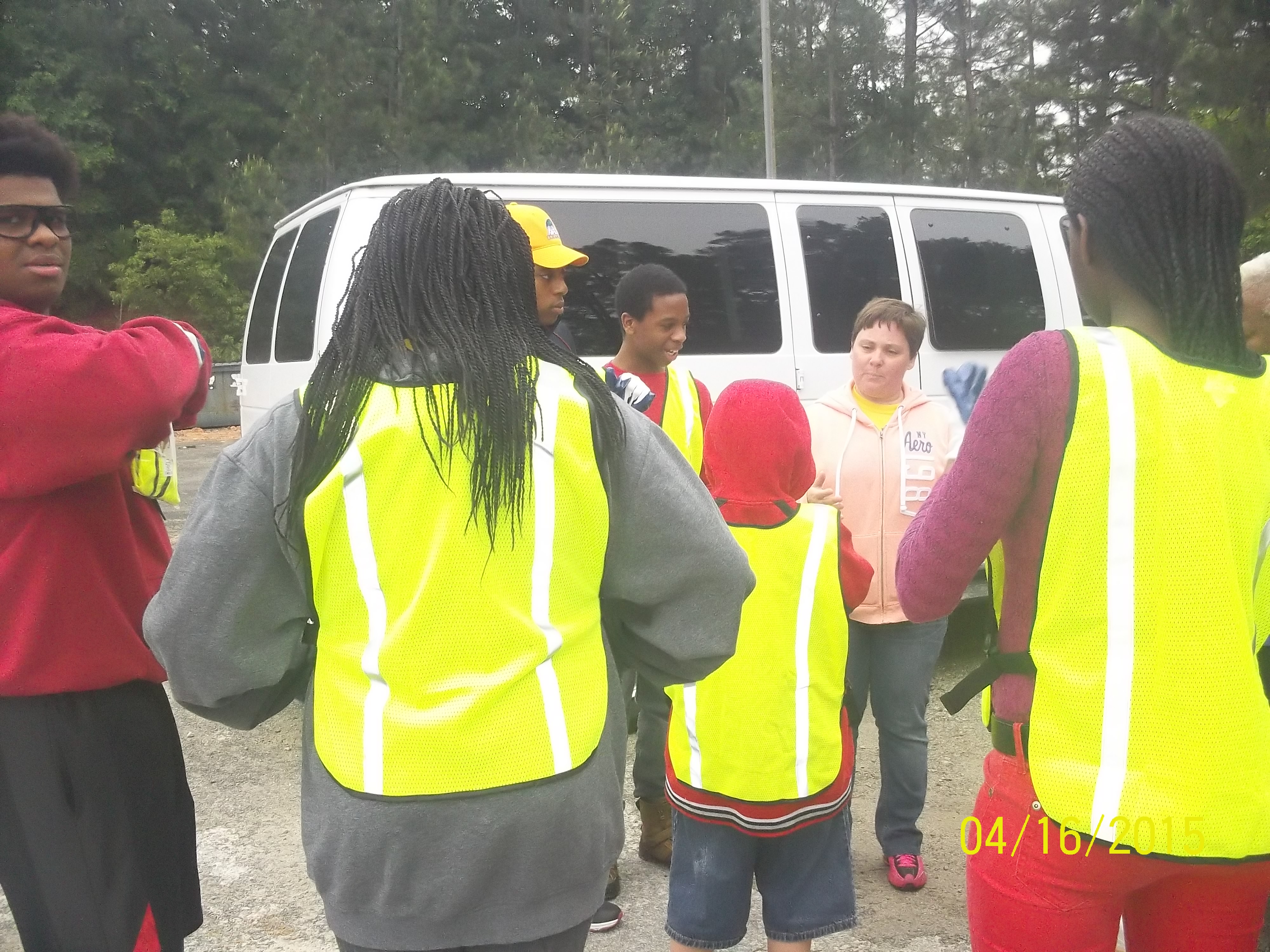
Pineland Behavioral Health and Developmental Disabilities, a community service board in eastern Georgia, offers both types of programs, and an additional co-occurring clubhouse program. SHINE is a resiliency support clubhouse that provides after-school care for children and adolescents in the area. Snacks are provided and computers are available to use, allowing kids to do their homework in a safe, supportive environment.
“The clubhouses are not focused on treatment, but on skill-building and exposing the kids to enriching activities,” said Dr. Cynthia Cone-Dekle, director of behavioral health at Pineland.
Pineland also runs IMPACT, a clubhouse for youth dealing with substance abuse challenges. Members in this program are typically older teens.
As youth are discharged from the clubhouse programs, outcome measures have shown a decrease in substance use, Department of Juvenile Justice involvement, and behavioral problems. Parents of clubhouse members have reported an increase in positive social function, school attendance and performance and improved family involvement and relationships.
DBHDD funds nine substance abuse recovery support clubhouses and six resiliency support clubhouses across the state.
For locations of the substance abuse recovery support clubhouses, please see: http://dbhdd.georgia.gov/child-and-adolescent-services
For locations of the resiliency support clubhouses, please see: http://dbhdd.georgia.gov/office-cyf-services#clubs
